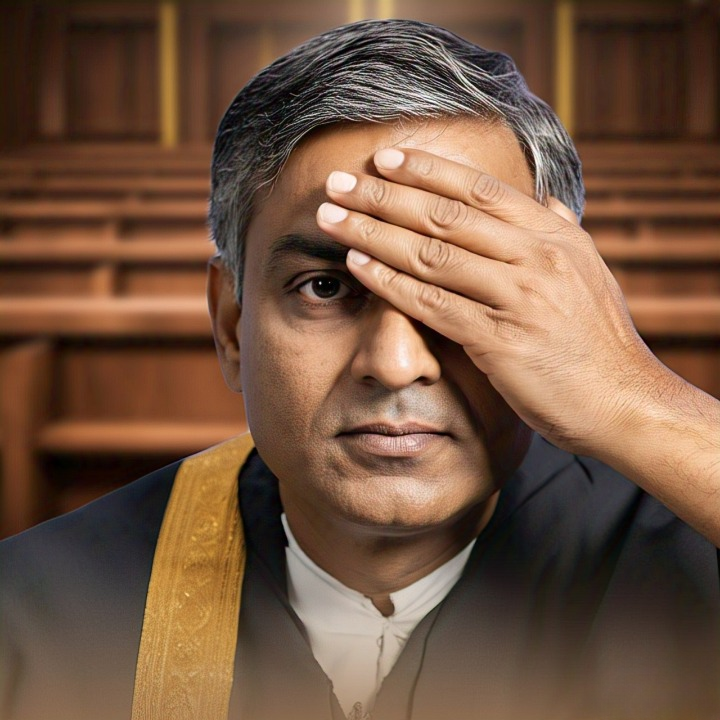Lalu Prasad Yadav, the former Chief Minister of Bihar and leader of the Rashtriya Janata Dal (RJD), has long been a significant figure in Indian politics. His tenure has been marked by both political influence and legal controversies, particularly the infamous fodder scam cases. Recently, he was granted medical bail, yet he remains actively engaged in political discussions, including attending key meetings of the INDIA alliance and making strong political statements. This raises pertinent questions about judicial oversight and the application of suo motu actions by Indian courts.
Lalu Prasad Yadav’s Bail and Political Engagements
Lalu Prasad Yadav was granted bail by the Jharkhand High Court in one of the fodder scam cases, citing medical grounds. The Supreme Court has acknowledged that canceling his bail after four years would be difficult. Despite his bail conditions, he has continued to participate in political discussions and strategy meetings.
Recently, Lalu Prasad Yadav attended an INDIA alliance meeting, where he actively contributed to discussions about the upcoming elections and the opposition’s strategy against the ruling party. His presence at such meetings and his vocal political statements indicate that he remains a central figure in shaping the opposition’s narrative.
In another case, the Delhi Court granted bail to Lalu Yadav and his sons in the Land-for-Jobs Scam, where he was accused of appointing individuals to railway positions in exchange for land at undervalued prices. The Enforcement Directorate (ED) had filed a chargesheet against him, yet he continues to remain politically active.
Judicial Suo Motu Actions: A Selective Approach?
Indian courts have historically taken suo motu cognizance in various cases, often intervening in matters of public interest. For instance, the Supreme Court recently initiated a suo motu contempt case against a YouTuber for making defamatory remarks against judges. This demonstrates the judiciary’s willingness to act independently when necessary.
However, in cases involving high-profile politicians, the judiciary’s approach appears inconsistent. While courts have taken suo motu action in cases of contempt or public interest litigation, they have not intervened in Lalu Prasad Yadav’s case despite his active political engagements post-bail. This raises concerns about selective judicial activism. Even more funny is that even NDA is also not raising it in front of the courts, which always claims to be against corruption all the time .

Lalu Prasad Yadav’s Political Statements and Influence
Despite his legal troubles, Lalu Prasad Yadav continues to make strong political statements that shape Bihar’s political landscape. Recently, he made a controversial remark about the caste census, stating that the opposition would pressure the government to conduct it, even suggesting that they would “hold RSS and BJP by the ear” to make it happen. This statement triggered a political debate, with BJP leaders criticizing his choice of words while RJD defended his stance.
Additionally, Lalu has been vocal about his party’s future, openly advocating for his son Tejashwi Yadav to become the next Chief Minister of Bihar. His influence remains strong within the RJD, despite Tejashwi handling most of the party’s decision-making.
Other Cases Where Suo Motu Was Taken
The Supreme Court has exercised suo motu powers in several instances:
Contempt of Court Cases: The judiciary has acted against individuals making defamatory remarks against judges.
Environmental Issues: The court has taken suo motu cognizance of pollution-related matters, including the Yamuna river pollution.
Public Interest Matters: The judiciary has intervened in cases of government apathy, such as the Kolkata doctor’s murder.
Given this precedent, the absence of judicial intervention in Lalu Prasad Yadav’s case appears unusual.
The judiciary’s role in maintaining legal accountability is crucial for a functioning democracy. While Lalu Prasad Yadav’s bail was granted on medical grounds, his active participation in political discussions raises valid concerns about judicial oversight. The selective application of suo motu actions by Indian courts warrants scrutiny, as it impacts public trust in the legal system. If courts can intervene in cases of contempt and environmental issues, should they not also ensure that bail conditions are strictly adhered to, especially in cases involving political figures?
The judiciary must uphold its impartiality and ensure that legal provisions are applied uniformly, irrespective of political stature. A transparent and consistent approach to suo motu actions would reinforce public confidence in the legal system.



